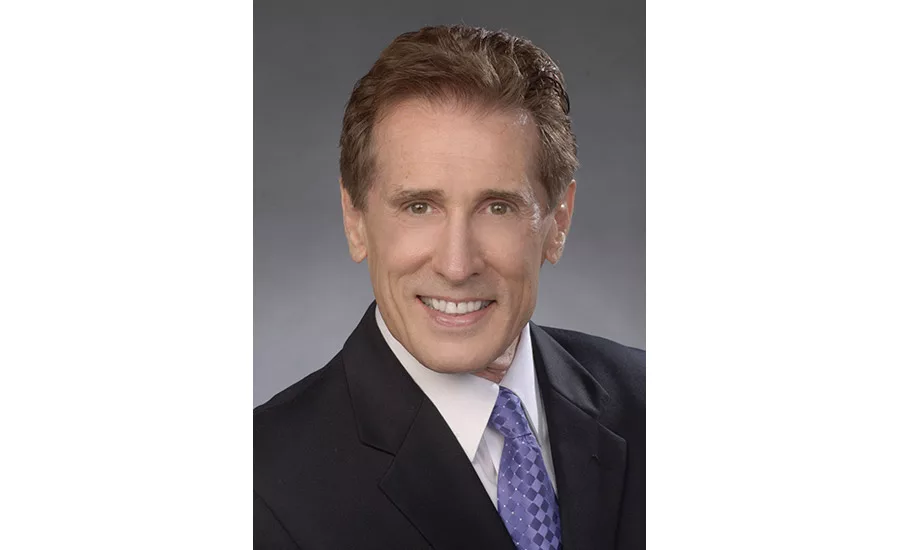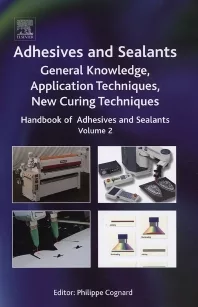Winning the Future of Adhesives and Sealants
Insights on future industry trends will be among topics discussed by keynotes at the ASC Annual Spring Convention and Expo in April.




From April 8-10, adhesives and sealants industry leaders will show brotherly love at the Adhesive and Sealant Council's Annual Spring Convention and Expo in Philadelphia. The program will include three concurrent technical sessions, as well as several networking opportunities and three timely keynotes.
Winning Organizations of Tomorrow
The opening session on Tuesday, April 9, will begin with a breakfast and keynote. Matt Thornhill, founder and managing partner of SIR’s research-based think tank Institute for Tomorrow, will present “Winning Organizations of Tomorrow.”
“In an economy running at essentially full employment for over three years, the battle for workers is intense,” Thornhill says. “This is especially true if you’re seeking younger workers, under age 35. Millennials are hard to find, recruit, hire, manage and retain. They are a top priority for anyone in talent acquisition today.”
He identifies three ways to attract Millennials: first, make sure you have a compelling story for potential Millennials workers. “It needs to be clear, concise and unique,” he says. “Everyone should know it, and it should be evident in everything you say or do when it comes to finding talent. Millennials want to work for an organization with a purpose larger than making money.
“Second, align your work culture with the expectations of the modern worker. Are you open, transparent and flexible? How do your diversity and inclusion efforts stack up? Are your HR policies and rules flexible and updated? Millennials expect your organization to operate as if it is 2019, not 1999.
“Third, offer basic benefits that are perceived as unique or better than what your competitors offer. Look online for what others offer and beat them. Sure, identifying those benefits takes some work, but it’s important.”
Thornhill considers older workers an important asset in today’s workplace, especially given the difficulty in finding workers. “Keeping who is on board and contributing might be the smartest talent management strategy companies can take these days,” he says. “But don’t for a minute think older workers don’t want to be in a work culture that’s modern. Just like Millennials, they prefer workplaces aligned with modern culture: open, transparent, creative, and flexible.
“Showing older workers that they are valued for their experience and wisdom is easy if you assign them to mentor younger workers. In fact, it’s a critical practice to reduce the risk of institutional knowledge retiring and draining the intellectual assets of the organization. Put in place old/young mentoring opportunities to ensure knowledge is transferred and not lost.”
The Blockchain Transformation
Wednesday morning will begin with breakfast and a presentation titled “The Blockchain Transformation: How Blockchain Enabled Digital Transformation Will Change Your Business, Your Industry and the World.” Jack Shaw, co-founder and executive director of the American Blockchain Council, says that the world will change more in the next five to 10 years than it has in the past 50, and perhaps no technology will drive that change more than blockchain. Just as the internet changed the way every manufacturer operated, blockchain will offer benefits that will improve how manufacturers work with their customers and suppliers both up and down the supply chain.
Shaw says there are four main concepts that executive-level decision makers need to understand what blockchains do. “First, they allow you to create permanent, signed and time-stamped records of all types of useful information,” he says. “These could include transaction records, identities or even contractual agreements. Second, the information can be shared among any and all entities in a supply chain or business ecosystem. This could include a manufacturer’s downstream to the manufacturers and distributors to whom they sell their adhesives or sealants.
“Third, the information is readily available to people who are authorized to see it, and can be updated by those authorized to do so.” Shaw says that individual people as well as small or large companies, third-party logistics companies, or even customs and regulators can share a common pool of information via a blockchain.
“Fourth, and perhaps most importantly, it is for all practical purposes, unhackable in terms of people not authorized to update that information being able to do so, or even to see it if they’re not authorized to see it,” says Shaw. “Blockchain information is not stored on any single computer; it is stored on many, many different computers. Depending on the implementation, it could be anywhere from dozens to hundreds to thousands of computers throughout the world.”
Architects and Adhesives
The conference closes on Wednesday afternoon with a keynote and reception. Joseph Wheeler, co-director of the Center for Design Research and professor of architecture at Virginia Polytechnic Institute and State University, will give the talk “Architects and Adhesives—A Perspective on Designing the HAUS of the Future.”
Wheeler says that, as we enter the digital revolution, architects, engineers, and builders must not only figure out how to integrate new digital technologies into homes, but also better ways to build with more industrialized methods of construction. FutureHAUS Dubai is the most recent of several prototypes developed at Virginia Tech’s Center for Design Research exploring these challenges.
“Through this energy-positive solar house, the research team is exploring all aspects of the smart home, from how we will live with new technologies such as the internet of things and artificial intelligence, to how we will build with the automation of house components like smart kitchen and bathroom pods,” he says. “With innovative new ways of building comes the necessity to utilize new materials to build with. In constructing the FutureHAUS, our team has discovered how adhesives will play a major role in the fabrication and assembly of future structures. We use adhesives for weatherproofing between prefab house modules, to laminate mounting hardware for exterior glass facades, for modular interior wall panel assemblies and for many smart interface assemblies within the home.
“In the presentation, I plan to give a thorough explanation of the FutureHAUS Dubai project, which will include many of the smart features and finishes that involve adhesives the hardware of the future.”
For more information, visit www.ascouncil.org.
Looking for a reprint of this article?
From high-res PDFs to custom plaques, order your copy today!






